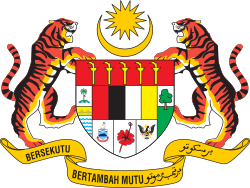United Pasok Nunukragang National Organisation Pertubuhan Kebangsaan Pasok Nunukragang Bersatu | |
|---|---|
 | |
| Abbreviation | PASOK |
| Leader | Disputed |
| Founder | O.K.K Sedomon Gunsanad G. S. Sundang |
| Founded | 1978 |
| Dissolved | 2008 |
| Headquarters | Kota Kinabalu, Malaysia |
| Ideology | Nationalism Regionalism |
| National affiliation | Sabah Front (1981-1986) |
| Party flag | |
 | |
| Website | |
| pasokranau | |
 |
|---|
The United Pasok Nunukragang National Organisation (Malay : Pertubuhan Kebangsaan Pasok Nunukragang Bersatu; PASOK) was a regional political party in Malaysia based in the state of Sabah. It was established in 1978. Before its deregistration, it was the oldest political party in Sabah that was currently still in existence. [1] Despite being a party that maintains a Kadazan-Dusun ethnocentric platform, membership is opened to all ethnicities and the party's leadership has multi-ethnic representation. [2]
Contents
- Political platform
- History
- Recent developments
- Prominent members
- Government offices
- State governments
- General election results
- State election results
- See also
- References
- External links
The term Nunukragang refers to Nunuk Ragang, the traditional birthplace of the Kadazan-Dusun culture and civilisation.